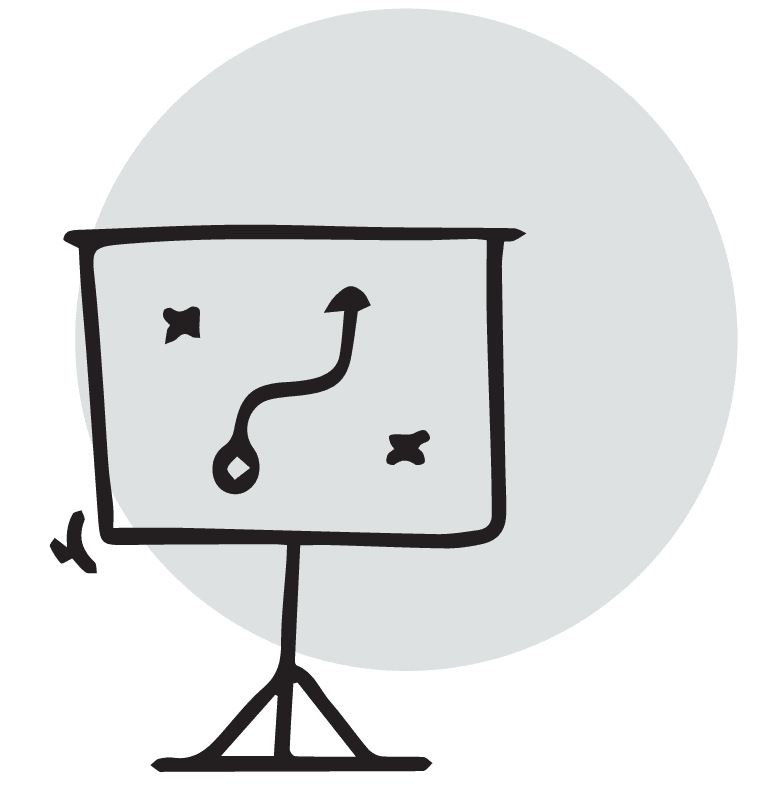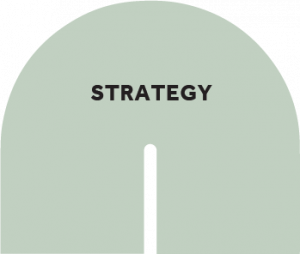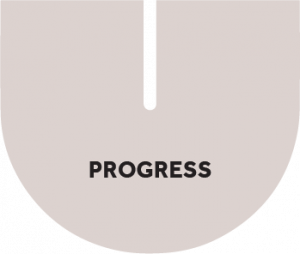What We Do
Strategic planning for nonprofit organizations that want to do more good.

Strategic planning might be your most important responsibility as a nonprofit leader.
A sound strategic plan shapes your organization’s goals for the future based on input from your many diverse stakeholders, determines which activities are best suited to advancing those goals, and gets everyone on your team and board rowing in the same direction to move your organization’s mission forward. The process of developing a strategic plan will force you to make difficult decisions about what your organization should do, and just as importantly, what it shouldn’t do. Ultimately, your strategic plan will allow you to work proactively, rather than reactively, to increase your organization’s impact.
Each of our strategic planning engagements are based on the Nonprofit Strategy SystemTM method and Shared Power StrategyTM philosophy, which position us to bring a strong equity and inclusion lens to the process.
Here’s how our strategic planning process works, at a high level:
People
 The Shared Power StrategyTM philosophy holds that, in order to build strategies that are truly effective and equitable, your nonprofit must engage its many diverse stakeholders – from beneficiaries to donors – in the strategy process. That’s why our strategic planning engagements always begin with People.
The Shared Power StrategyTM philosophy holds that, in order to build strategies that are truly effective and equitable, your nonprofit must engage its many diverse stakeholders – from beneficiaries to donors – in the strategy process. That’s why our strategic planning engagements always begin with People.
We help your organization better understand its stakeholders and determine the best ways to engage them in the strategic planning process. We capture their input via surveys, interviews, listening sessions and/or stakeholder committees utilized both at the onset of the strategic planning process, and at key points during the development of your strategic plan.
During the People phase of our process, we always establish a primary planning committee made up of your organization’s staff. We also often establish a stakeholder committee of internal and external stakeholders who can lend input at key points during the planning process, and advise on how best to involve your board of directors.
NEXT: Strategy
Strategy

The Strategy phase of our process begins with organization and ecosystem assessments. These assessments ground planning teams in the current state of your organization and its standing relative to other, similar organizations.
Then, if needed we work collaboratively with you and your stakeholders to develop or reaffirm your nonprofit’s mission, vision and values. These elements serve as the foundation of your strategic plan.
Next, we facilitate a series of workshops to evaluate the strategic questions your organization needs to answer over the next three years, establish pillars around which your strategic plan will focus, and set measurable objectives and key results (OKRs) for each pillar. We seek feedback and input from your stakeholders on these elements as they are developed.
NEXT: Progress
Progress
 The Progress phase of our process picks up where most strategic planning consultants leave off. This phase is all about ensuring your organization has the systems and processes in place to bring its plan to life and achieve its most important goals.
The Progress phase of our process picks up where most strategic planning consultants leave off. This phase is all about ensuring your organization has the systems and processes in place to bring its plan to life and achieve its most important goals.
During this phase, we work with organizations like yours to set up accountability systems such as activity plans that lay out exactly who must do what for the next 12 months in accordance with your strategies, and set up key results dashboards that make it easy to see how your organization is performing against the results you set out to achieve.
We also advise on a meeting cadence that will help you bring the right people together monthly, quarterly and annually to move your strategy forward, assess progress and make adjustments. Finally, we help you establish measurement optimization practices that make it easy to understand what’s working, what’s not and how to optimize your strategy accordingly, for the good of the people and communities you serve.
We offer three different engagement options for strategic planning:
Fundamental Strategic Planning
With our Fundamental Strategic Planning package, you will receive the expert guidance, facilitation and tools you need to develop the essential elements of your next three-year strategic plan over the course of 12 weeks of work together. It’s a great fit for organizations that want to get the most important parts of their strategic plan in place quickly while still engaging their stakeholders in meaningful ways, and those that are comfortable working through our proven process.
- Duration: 12 weeks
- Location: Typically remote via Zoom
- Facilitation: 6 sessions facilitated by Prosper Strategies
- Stakeholder Engagement: Survey and listening sessions
- Deliverables: Three to five strategic plan pillars; Supporting objectives for each; Guidance drafting the final plan; Objective and key results dashboard; Recommended meeting cadence
- Follow Up Support: Three hour-long check in meetings in the three consecutive months following our initial 12-week planning process
- Customization: Limited
- Investment: $45,000
Note: Mission, vision, values and Theory of Change work is not included in the Fundamental Strategic Planning package but can be added (additional fees apply, see here).
Intensive Strategic Planning
With our Intensive Strategic Planning package, we will work with you to design a bespoke approach to the strategic planning process perfectly suited to the unique needs of your organization and the specific challenges you face. This is a great fit for organizations willing to spend more time, money and effort on going deep in the strategic planning process, those with unique needs for custom approaches to stakeholder engagement and collaboration, and those facing complex challenges or change.
- Duration: Typically ~4-6 months (timeline can be condensed with in-person retreat)
- Location: Remote via Zoom or option for select session(s) to be conducted in-person (client is responsible for travel fees)
- Facilitation: Typically 10-12 sessions. Sessions can also be combined into a multi-day planning retreat for organizations that choose the in-person option.
- Stakeholder Engagement: Range of options customized to your unique stakeholder situation. Can include a combination of surveys, focus groups, interviews, stakeholder committees, and listening sessions.
- Deliverables: Typical deliverables include things such as a Research report; Mission; Vision; Values; Three to five strategic plan pillars; Supporting objectives for each; Objective and key results dashboard; Recommended meeting cadence; Written and designed strategic plan document. Other deliverables, such as a Theory of Change or materials for sharing the strategic plan to board and staff, may be added based on your specific needs.
- Customization: Highly tailored to your organization’s needs.
- Investment: Determined based on your organization’s specific needs, after initial consultations. Contact us.
Facilitated Strategic Planning Retreats
When you hire Prosper Strategies for a facilitated strategic planning retreat, your nonprofit’s leadership team will benefit from expert facilitation to help you make the most important decisions that will guide your strategic plan. Our two-day retreats are a good fit for organizations that benefit from structured collaboration, but are comfortable working on their own through parts of the strategic planning process.
- Facilitation: Two full-day sessions facilitated by Prosper Strategies
- Stakeholder Engagement: Survey and option for stakeholder committee involvement on day 2
- Duration: Two 8-hour days
- Location: In-person preferred, remote via Zoom is a possibility for groups that have experience working virtually
- Deliverables: Three to five strategic plan pillars; Draft objectives for each pillar; Strategic plan template; Objective and key results dashboard template; Recommended meeting cadence.
- Follow Up Support: One hour-long check in meeting in the month following our initial two-day retreat.
- Customization: Limited
- Investment: $30,000
Related Elements: Mission, Vision, Values and Theory of Change
As an accompaniment to strategic planning work, we often guide clients through developing, reaffirming, or refining their:
- Vision: the world you would create of your organization achieved all its goals
- Mission: the work your organization is doing every day to see through its vision – what you do, who you do it for and why it matters
- Values: a set of guiding principles that shape the behavior and decision making of everyone on your team
- Theory of Change: a long-term goal for the broader social change you’re looking to achieve, hand-in hand with others in your ecosystem, and a map of all of conditions that are needed to meet it
These elements are developed through a series of workshops, with deep stakeholder engagement guided by Shared Power StrategyTM philosophy. Some organizations simply want to revisit and reaffirm or slightly modify these elements before proceeding with strategic planning. Others want to completely revamp them. Vision, mission and values development can be added onto strategic planning or done on an a la carte basis for $5,000 for each element. Theory of Change work is priced on a case-by-case basis.


